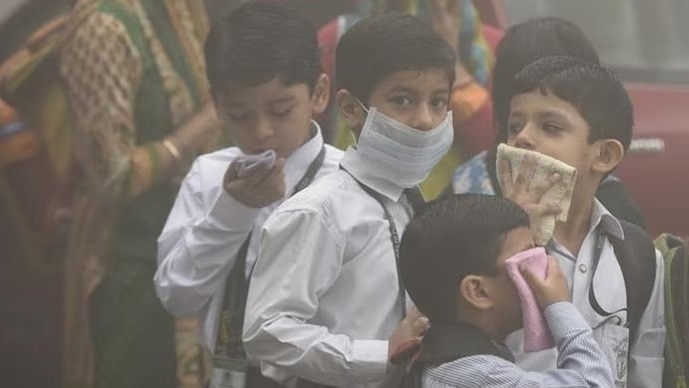As Delhi endures its annual smog crisis, Ixigo CEO Aloke Bajpai has issued a sharp rebuke to city residents for their indifference to the health emergency. Bajpai expressed his frustration on social media, lambasting people for their reluctance to wear masks despite looking dangerous.
“With an AQI of over 500, my children seemed to be the only ones wearing masks at school,” he wrote, “and one parent asked me, ‘Is everything okay with your son?’ No, all is not well with the air these children breathe.
As the Air Quality Index (AQI) climbed above 400, reaching the « severe » category, the Commission for Air Quality Management (CAQM) activated Phase III of the Graduated Response Action Plan (GRAP).
This phase restricts the construction and use of diesel generators and places strict limits on vehicles to mitigate pollution. Bajpai’s frustration with Delhi’s lackadaisical attitude echoes the concerns of many who worry that complacency will turn this annual air quality problem into a growing health crisis. “I see more than 50 elderly people in my society on their morning walk,” he continued. “Why isn’t there a public health awareness campaign on this yet? »
What is GRAP?
GRAP is a progressive system designed to address pollution as it worsens, with increasing responses based on air quality. Here is a breakdown of the four GRAP steps:
Stage I (AQI 201-300): “Poor”
- Measures: Periodic mechanized sweeping and watering of roads to control dust.
- Dust mitigation protocols on construction sites, as well as better waste management.
- Emission controls for vehicles, power plants and industries; strict controls on polluting vehicles.
- Banning open burning and restricting the use of diesel generators in restaurants; tips for eco-friendly celebrations.
Stage II (AQI 301-400): “Very poor”
- Measures: Increased frequency of mechanized road cleaning and dust control.
- Uninterrupted power supply to reduce dependence on private generators.
- Increase in parking fees to discourage the use of private vehicles.
- Public transport increased with additional bus and metro services to reduce traffic congestion.
Stage III (AQI 401-450): “severe” (currently active)
- Measures: Ban on non-essential construction and demolition activities (exemptions for national security and health projects).
- Restrictions on BS-III petrol and BS-IV diesel vehicles in Delhi and NCR.
- Diesel generators limited to emergency operations only; strict controls on industries using unapproved fuels.
- Increased public transport services and incentives for off-peak travel.
Stage IV (AQI > 450): “Severe Plus”
- Measures: Ban on all construction and demolition activities, including public infrastructure projects.
- Truck entry restrictions in Delhi, with potential school closures.
- 50% government-mandated workforce for office work; consideration of restrictions on odd and even vehicles.
Despite these measures, Bajpai observed a persistent lack of awareness and urgency among residents. Responding to social media suggestions that he should move, Bajpai replied: “Not everyone can move. N99 masks are useful. He further highlighted the lack of effective health campaigns, wondering why pulmonologists are not more visible on this issue. « A middle-aged uncle shrugs it off saying, ‘Ab to hamein immune hai ji’ (Now we are immune). »
Pollution in Delhi has led health experts to urge residents to limit their outdoor activities, warning of serious cognitive and physical consequences of long-term exposure.



